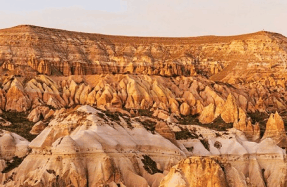SPECIAL REPORT The natural traveller

I’m a qualified natural health practitioner and a traveller. I know the joys and challenges travel can bring. This special report draws on my own experience of maintaining health while travelling — often off the beaten track — to many parts of the world, and combines it with the latest research.
Travel brings both rewards and challenges. To travel well it’s far better if you can retain your health and energy and not succumb to local illnesses. Staying healthy while travelling is often a very different scenario from maintaining your health at home.
It’s preferable to prevent illness by awareness and following certain procedures than it is to have to deal with acute illnesses while travelling. Before leaving, always get a medical/naturopathic and dental check-up. Dentists are particularly hard to find in many countries, so get your teeth fixed before you go, if at all possible.
In health terms, different areas of the world have different challenges. Travelling to Asia and the Middle East, you are more likely to be exposed to pathogenic organisms that impact on gut function and can make you vomit and trigger diarrhoea, especially if, like me, one of the reasons you travel is to experience new foods and flavours. This frequently means trying street food. If travelling to Europe, Russia and other colder climates, respiratory infections are more common.
Hygiene
Good hygiene is essential anywhere in the world. Wash your hands frequently and make liberal use of hand sanitisers if you have no easy access to clean water and soap for washing. I use a natural hemp-based one that is effective. The hand sanitisers without the antimicrobial chemical triclosan are healthier options.
Not a drop to drink
Never, ever drink the local water. Always drink bottled water from a bottle that is sealed — check it hasn’t been drained and refilled — or drink filtered water. Never have ice in drinks and always wash your teeth in filtered or bottled water, and never eat salads that may have been washed in the local water. Large hotels are usually safe for salads but it’s worth checking.
While bottled water is readily available worldwide these days, for the sake of the environment it’s useful to carry a water purifier. Camping stores sell a variety of water purifiers. Personally, I don’t like the chlorine-based tablets but prefer a battery-operated UV light system that sterilises water. You could also take colloidal silver and/or hydrogen peroxide to sterilise water, clean and disinfect teeth, and, in the case of colloidal silver, to act as an antimicrobial internally and topically.
Small portable travel filters can also be useful for removal of other unwanted chemicals. There are various filters available that are worth considering. Heavy metal and chemical removal systems may be required if drinking well water — for example, arsenic
You’re reading a preview, subscribe to read more.
Start your free 30 days



